English Channel migrants: Where they're from and what they're escaping
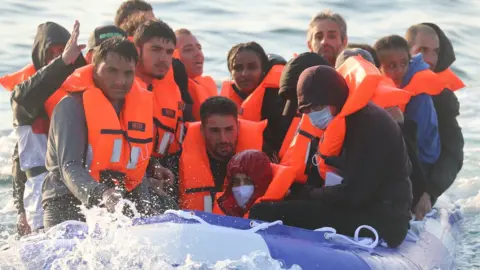 PA Media
PA MediaIt's a hot day in Kent with calm waters lapping the shore off the shortest sea span between England and France.
These are perfect conditions to move migrants across the world's busiest shipping lane to where they hope to make a home.
In the early mornings locals say they see people - even pregnant women - without belongings, resting on the beach, relieved to have survived the crossing.
Recent conditions have seen large numbers of migrants travel to the UK in small boats across the English channel, to claim asylum and start a new life.
More than 200 reached the Kent coast last weekend alone.
This is a very brief overview of the main places they are coming from and what they're trying to escape.
Yemen
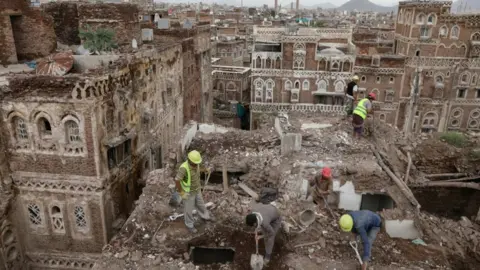 Reuters
ReutersYemen is one of the world's poorest countries and has been devastated by a civil war.
It lies on the southern part of the Arabian Peninsula and major fighting between two religious groups has been going on for almost 10 years.
But recently the violence has stepped up with the support of some neighbouring countries.
This has brought a variety of problems, including attacks by jihadists, a movement to break away from Yemen in the south, as well as corruption, unemployment and food becoming scarce for people who live there.
Eritrea
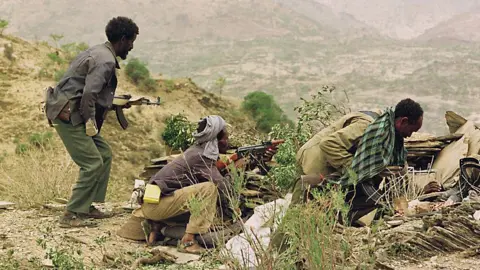 Getty Images
Getty ImagesEritrea, situated on the Red Sea opposite Saudi Arabia, is one of Africa's poorest countries.
An estimated 1.5 million Eritreans now live overseas - about a fifth of its people.
One reason people leave is the country's indefinite military service. Anyone between 18 and 50 can be called up and it can last for years.
For decades, the Eritrean economy has struggled because of a combination of war, authoritarian rule and the impact of United Nations sanctions.
There is hope that a new relationship with Ethiopia can continue to open up the economy and improve conditions for people living there.
Chad
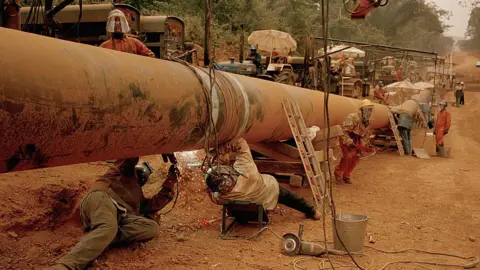 Getty Images
Getty ImagesChad is a landlocked country in north-central Africa dominated by desert.
It's not a country that tolerates people who speak out against the government.
Chad is rich in gold and uranium and should benefit from its recently-acquired status as an oil-exporting state.
But its history since gaining independence from France has been marked by instability and violence.
This violence comes most often from tension between the mainly Arab-Muslim north of Chad and the predominantly Christian south.
It also suffers from a lack of transport links and poor building materials.
Poverty is rife, and health and social conditions are weak compared to its neighbours.
Egypt
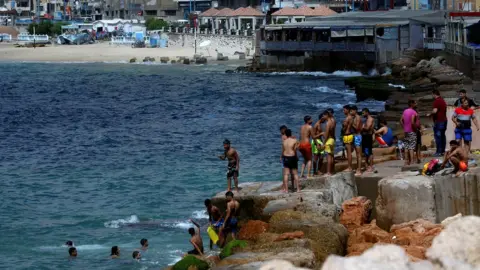 Reuters
ReutersWith a population approaching 85 million people, Egypt is a major player in the Middle East.
The North African country is the gateway to Asia and home of the Suez canal, one of the busiest shipping lanes in the world.
But authorities have been increasing controls over traditional and social media to levels not seen before.
The economy was already struggling before the 2020 global pandemic and political turmoil in the past ten years has put many Egyptians on the move.
Problems with Islamists killing civilians and tourists on its borders with Israel and Gaza has not helped.
Yet the country has good transport and international buildings and companies in many big cities. It also does well from international tourism.
Sudan
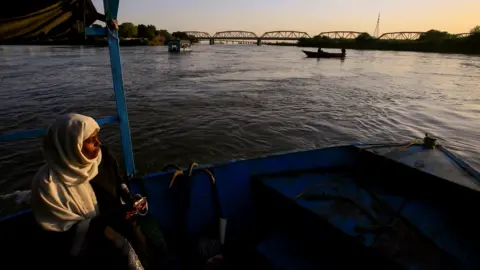 Reuters
ReutersSudan is a large North African country that also borders the Red Sea.
Months of street protests against authoritarian rule came to a head last year resulting in a new government.
Yet Sudan has long been been plagued by conflict.
Two rounds of north-south civil war cost the lives of 1.5 million people, and a continuing conflict in the western region of Darfur has driven two million people from their homes and killed more than 200,000.
In 2011 the country split in two, with South Sudan becoming a new state.
Life expectancy is only 63-66 and the government heavily controls the media.
Iraq
 EPA
EPAA country of 37 million people, situated south of Turkey, Iraq is never far from the news.
After being the focus of international wars, there is continuing violence between different religious groups.
Governments since the Iraq War have struggled to maintain order and the country has enjoyed only brief periods of calm.
The instability has made it difficult to rebuild an economy shattered by decades of conflict and sanctions (restrictions put on buying and selling goods by other countries).
This is all despite Iraq having the world's second-largest reserves of crude oil.
Syria
 EPA
EPAThis is one of the most common places that people originate from to make the crossing.
Bordering the Mediterranean Sea and Lebanon, Syria has a population of over 20 million people, but one that is arguably more dispersed than any other on this list.
Almost 400,000 people have been killed and 13.2 million others - half the pre-war population - have been displaced inside and outside Syria since an uprising and then civil war began in 2011.
One of the biggest issues now though is a lack of food.
Syria faces the risk of mass starvation unless more aid money is made available, the head of the UN World Food Programme has said.


